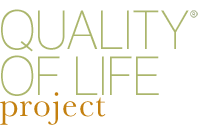
Many of us have heard about the positive psychology studies on the how doing charitable acts correlates with higher scores of life satisfaction. It is a very interesting concept which we may discuss another time.
Less appreciated and what I find even more fascinating is the correlation between high life satisfaction scores and a greater propensity to commit altruistic acts. The idea that the more one’s house is in order and the more contented one is, the greater the probability that they will engage in philanthropy or just be generous citizens overall. [Or if that same individual is already a contributor to philanthropic causes, any incremental life satisfaction strides should lead to only greater intensity of giving.]
One leader of the positive psychology movement who has brought this to light is Sonja Lyubomirsky, author of The How of Happiness. Through her own research and referencing studies from Musick and Wilson (2003), she has asserted that the higher one scores on life satisfaction the higher their propensity to engage in altruistic acts.
This is one of the motivations behind Best Life Practices Foundation; which is to focus on the giver side of the philanthropy equation. We’re not addressing the needs of people on the receiving end. I.e. Providing clean water or eyeglasses to the vision impaired. We want to energize the giver side of the game. Our perspective is that the more we can help people ratchet up their own quality of life, the greater the number of those in society (and the greater the energy per individual already on that path) who want to make the world a better place.
It makes sense on a common sense level as well. When we’re discontented, we’re less likely to be open and generous with others. When we’re feeling satisfied, we’re less self-absorbed and just a lot cooler to be around.
Let me know what you think.
